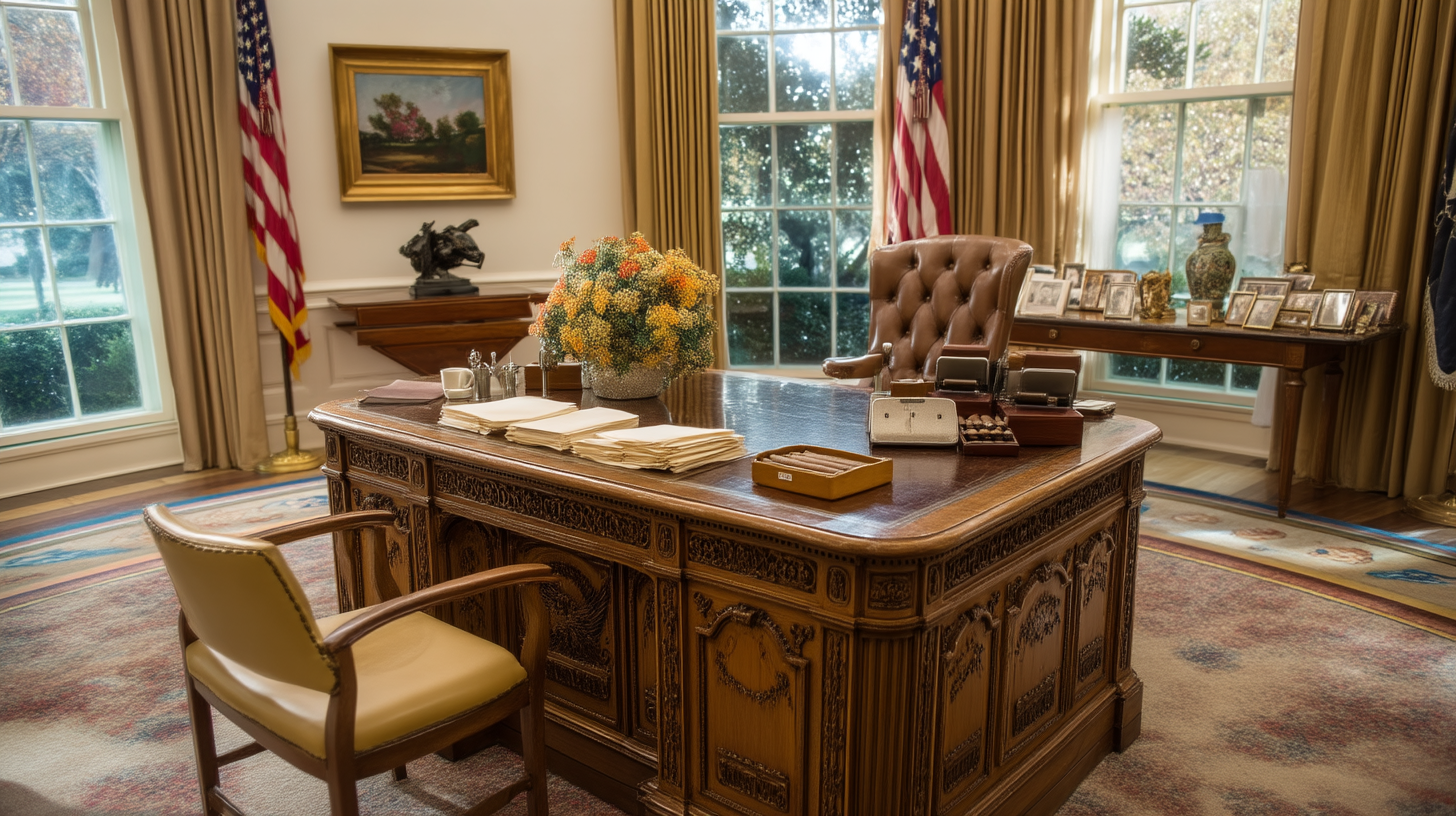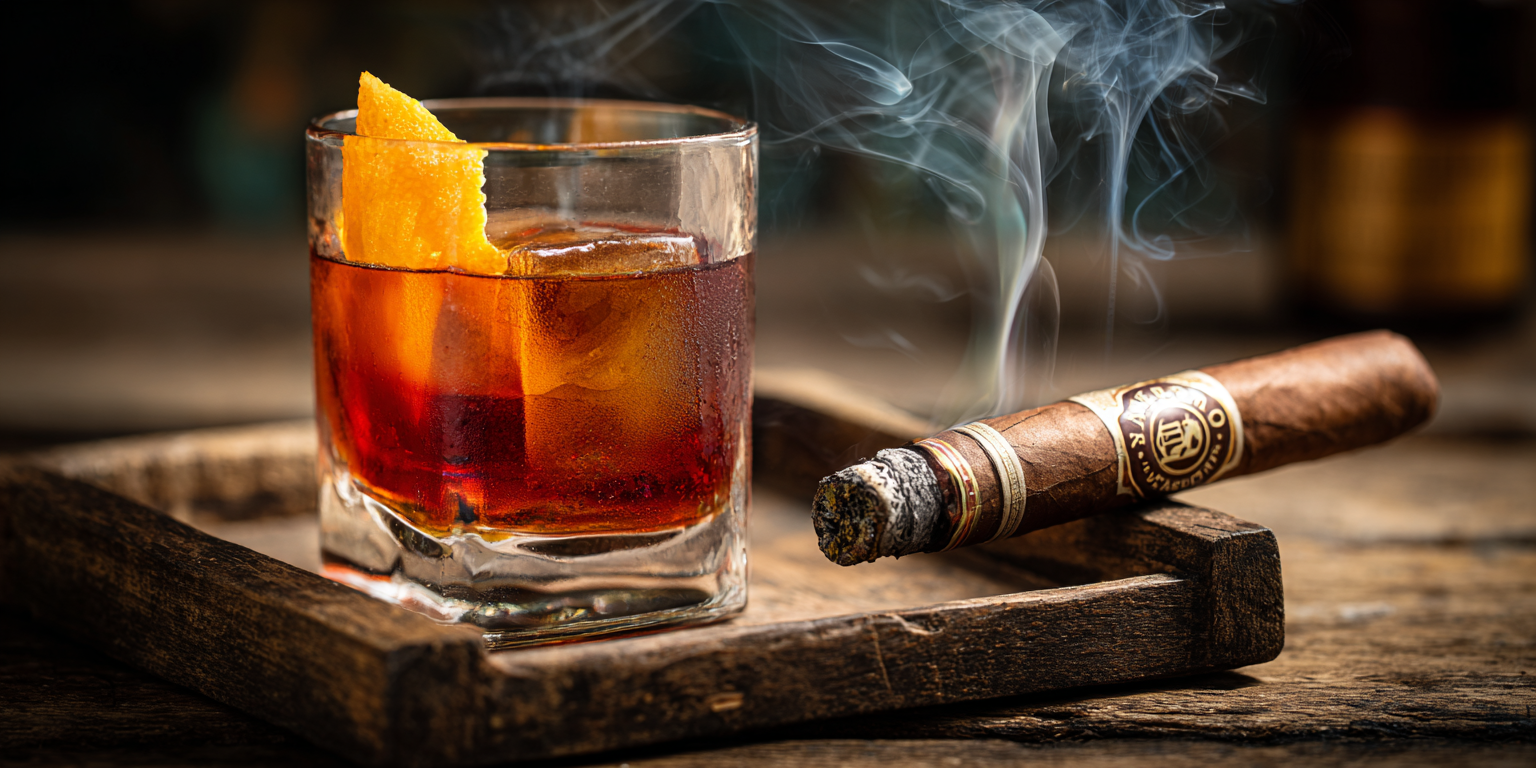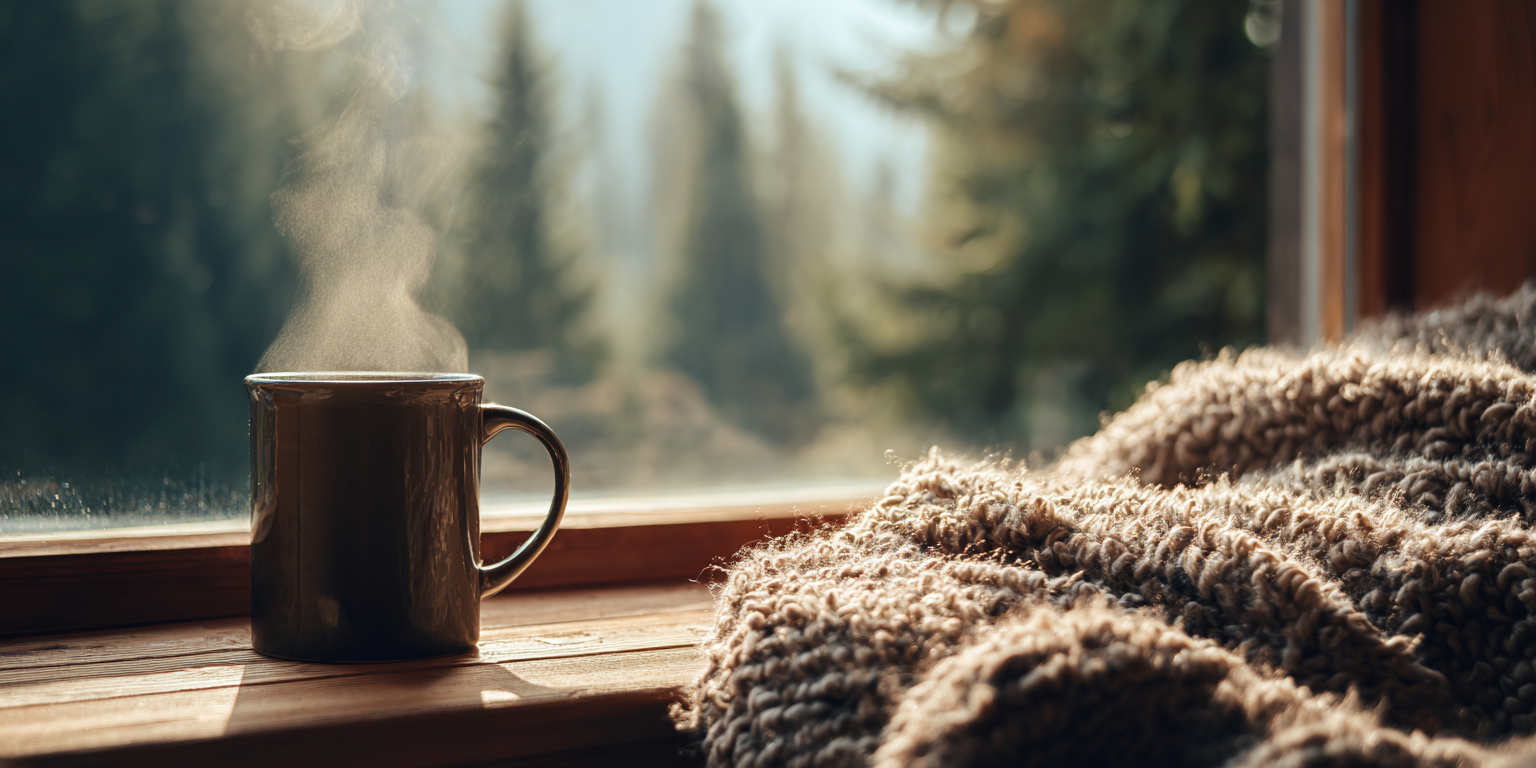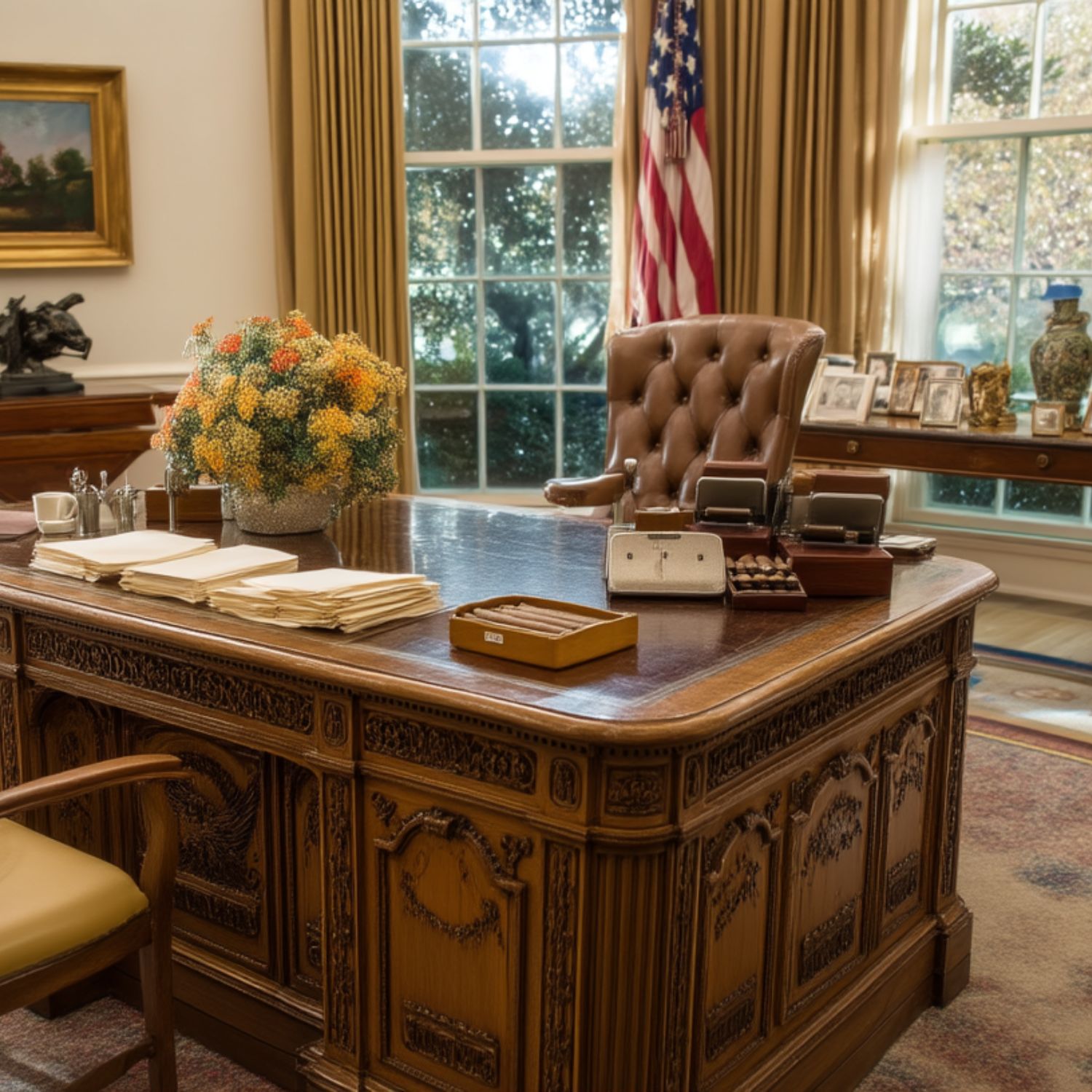The Cuban Embargo's Impact on the Cigar Industry

Welcome to a deeper dive into a story we explored on our latest episode of Smoke Signals. In this blog post, we'll expand on the fascinating tale of how the U.S. embargo on Cuban goods, particularly cigars, dramatically reshaped the global cigar market. We'll examine the shift in cigar production to countries like the Dominican Republic, Honduras, and Nicaragua, and explore the unique allure that Cuban cigars gained in the United States due to their forbidden status. If you enjoyed the episode, you'll find even more detail and context here. If you haven't already, be sure to listen to the full story on Smoke Signals: JFK’s 1,200 Cigars and the Cuban Embargo Story.
Introduction: The Cuban Embargo and Its Impact
The Cuban embargo, officially known as the Cuban Assets Control Regulations, was initially implemented in October 1960 in response to the Cuban government's nationalization of U.S.-owned properties. Over time, it evolved into a comprehensive economic, commercial, and financial embargo, significantly impacting nearly every aspect of Cuban life and its international relations. While the political and social implications are vast and complex, one particular area experienced a dramatic transformation: the cigar industry. Before the revolution, Cuba was renowned as the producer of the world’s finest cigars, a reputation built on centuries of tradition, unique growing conditions, and unparalleled craftsmanship. The embargo severed the direct link between American consumers and Cuban cigars, creating a void in the market and fundamentally altering the landscape of cigar production globally.
The embargo's effects were far-reaching. It not only restricted trade but also discouraged investment and tourism, impacting the Cuban economy as a whole. For the cigar industry, it meant that Cuban cigars could no longer be legally imported into the United States, the world’s largest cigar market. This created an immediate crisis for Cuban cigar manufacturers, who suddenly lost a significant portion of their customer base. However, it also presented opportunities for other countries to step in and fill the demand, leading to a diversification of cigar production and the emergence of new players in the global market.
JFK's Secret Mission: Securing 1,200 Cigars
As the story goes, in early February 1962, President John F. Kennedy, a known cigar aficionado, was preparing to sign the executive order that would formalize the Cuban embargo. Before doing so, he allegedly tasked his press secretary, Pierre Salinger, with a mission of utmost importance: to procure a substantial supply of his favorite cigars, H. Upmann Petit Coronas. Kennedy knew that the embargo would make it illegal for Americans to purchase Cuban cigars, and he wanted to ensure he had a sufficient personal stock to enjoy during his presidency.
According to Salinger’s account, Kennedy was very specific about the quantity. He needed 1,000 H. Upmann Petit Coronas. Salinger immediately embarked on a frantic search across Washington D.C., visiting numerous tobacconists and cigar shops. The task was challenging, not only because of the sheer volume required but also because discretion was paramount. Salinger couldn't reveal the reason for the urgent purchase, as it would prematurely disclose the impending embargo and potentially cause market disruption. He quietly negotiated with shop owners, buying out their entire stock of H. Upmann Petit Coronas whenever possible.
The following morning, Salinger triumphantly returned to the White House, presenting President Kennedy with not 1,000, but 1,200 H. Upmann Petit Coronas. Only then, satisfied that he had secured his personal supply, did Kennedy reportedly sign the executive order enacting the Cuban embargo. This anecdote, whether entirely factual or embellished over time, has become a legendary tale in the cigar world, symbolizing the complexities and ironies surrounding the embargo.
The Night Before: Kennedy's Last Cigars
The story of Kennedy's cigar quest adds a personal and human dimension to a significant political event. It highlights the fact that even amidst Cold War tensions and global strategic decisions, individuals have personal preferences and habits that they seek to maintain. The image of the President, known for his charisma and decisive leadership, quietly ensuring his access to his favorite cigars before imposing a ban that would affect millions, is both intriguing and somewhat humorous.
The tale also underscores the allure of Cuban cigars. Even in a time of escalating political tensions, Kennedy’s desire to secure a personal stash demonstrates the high regard in which Cuban cigars were held. They weren't just a commodity; they were a symbol of luxury, quality, and a particular lifestyle. This allure would only intensify in the years following the embargo, as Cuban cigars became increasingly scarce and forbidden in the United States.
The Embargo's Ripple Effect on the Cigar Industry
The Cuban embargo created a vacuum in the U.S. cigar market, prompting a search for alternative sources of premium tobacco. The Dominican Republic, Honduras, and Nicaragua emerged as key players, quickly adapting and expanding their cigar production capabilities. These countries possessed favorable growing conditions, experienced farmers, and a willingness to invest in the necessary infrastructure to meet the growing demand from American consumers.
The Dominican Republic, in particular, benefited significantly from the embargo. Many Cuban cigar makers, facing nationalization and political uncertainty, relocated to the Dominican Republic, bringing with them their expertise, traditions, and even some of their original Cuban tobacco seeds. This influx of talent and resources helped to establish the Dominican Republic as a major cigar-producing region. Brands like Davidoff and Arturo Fuente, originally Cuban brands, established new operations in the Dominican Republic and continued to produce high-quality cigars.
Honduras also saw significant growth in its cigar industry. The climate and soil in certain regions of Honduras, such as the Jamastran Valley, proved to be well-suited for growing tobacco. Honduran cigars gained popularity for their bold flavors and robust profiles. Brands like Rocky Patel and Camacho established a strong presence in Honduras, contributing to the country's reputation as a producer of full-bodied and flavorful cigars.
Nicaragua, despite experiencing political instability and conflict during the embargo years, also emerged as a notable cigar producer. The fertile volcanic soil of Nicaragua, especially in regions like Estelí, proved ideal for growing high-quality tobacco. Nicaraguan cigars became known for their rich, complex flavors and spicy notes. Brands like Padrón and My Father Cigars established themselves in Nicaragua, earning critical acclaim and contributing to the country's growing reputation in the cigar world.
The embargo not only shifted production to these countries but also fostered innovation and experimentation in cigar making. With access to Cuban tobacco restricted, cigar makers in the Dominican Republic, Honduras, and Nicaragua began to develop their own unique blends, using a combination of locally grown tobacco and imported leaves from other regions. This led to a greater diversity of flavors and styles in the cigar market, enriching the overall experience for consumers.
The Allure of Forbidden Cuban Cigars in the U.S.
The Cuban embargo inadvertently created a mystique around Cuban cigars in the United States. The fact that they were forbidden only heightened their appeal, turning them into a symbol of luxury, rebellion, and forbidden pleasure. For many American cigar enthusiasts, owning and smoking a Cuban cigar became a way to experience something exclusive and unattainable, a connection to a culture and a history that was otherwise off-limits.
A black market for Cuban cigars emerged, with smugglers and informal networks supplying American consumers with illicit smokes. The risks involved in obtaining Cuban cigars only added to their allure, making them a coveted item among collectors and aficionados. Stories of elaborate smuggling operations, clandestine meetings, and hidden stashes further fueled the legend of the Cuban cigar.
The allure of Cuban cigars also extended to popular culture. They were often portrayed in movies and television shows as a symbol of power, wealth, and sophistication. Characters who smoked Cuban cigars were often depicted as being worldly, knowledgeable, and possessing a certain air of mystery. This further reinforced the perception of Cuban cigars as something special and desirable.
Even as other countries developed their own high-quality cigars, the mystique of Cuban cigars persisted. Many American cigar smokers continued to seek out authentic Cuban cigars, often traveling to countries where they were legally available or relying on informal channels to obtain them. The demand for Cuban cigars in the U.S. remained strong, even decades after the embargo was first imposed.
The Irony of JFK's Legacy
The story of John F. Kennedy and his 1,200 H. Upmann Petit Coronas is filled with irony. The President who loved Cuban cigars became the President who banned them, inadvertently contributing to the mystique and allure of Cuban cigars in the United States. His personal connection to Cuban cigars, combined with his decision to impose the embargo, created a paradoxical situation that continues to fascinate and intrigue cigar enthusiasts to this day.
Kennedy's actions also had a lasting impact on the global cigar industry. The embargo forced the industry to diversify and innovate, leading to the emergence of new players and a greater variety of cigars. While Cuban cigars maintained their reputation for quality, other countries stepped up to fill the demand, offering their own unique expressions of premium tobacco.
The story of JFK's cigars serves as a reminder that even the most significant political events can have unexpected and unintended consequences. The Cuban embargo, intended to isolate and weaken the Cuban government, ultimately transformed the global cigar market and created a lasting legacy of intrigue and mystique surrounding Cuban cigars.
Conclusion: Cigars in Cold War History
The story of the Cuban embargo and its impact on the cigar industry is a microcosm of the broader Cold War narrative. It highlights the complexities of international relations, the unintended consequences of political decisions, and the enduring power of human desires. The tale of JFK’s 1,200 cigars, whether fact or legend, encapsulates the human element within these grand historical events, reminding us that even leaders making world-altering decisions are still individuals with personal tastes and preferences.
From the frantic search for Kennedy’s favorite smokes to the rise of new cigar-producing regions, the Cuban embargo has left an indelible mark on the cigar world. It has shaped the flavors, styles, and availability of cigars for generations of smokers, and it has created a lasting mystique around Cuban cigars that continues to captivate enthusiasts today. We hope this exploration has provided a deeper understanding of this fascinating chapter in cigar history. Be sure to listen to the full story and more on our podcast, Smoke Signals: JFK’s 1,200 Cigars and the Cuban Embargo Story.








